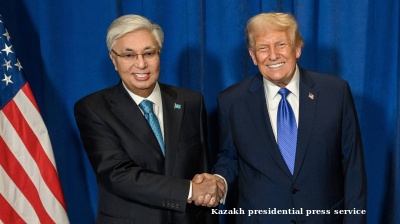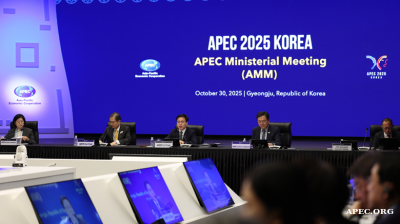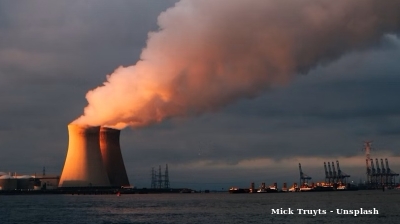Israel's massive airstrike on Iran involving over 200 aircraft has placed Lebanon in a precarious position, with Hezbollah's response—or deliberate restraint—emerging as a critical factor in determining whether the Middle East slides into wider conflict.
Though Hezbollah issued a strongly worded condemnation of the Israeli strikes, calling them "a blatant act of aggression backed by the United States," the group has notably refrained from military retaliation. A senior Hezbollah official confirmed to BNE IntelliNews that the organisation "will not initiate an attack on Israel," signalling deliberate intent to avoid immediate regional escalation.
This restraint appears driven by both strategic calculation and mounting domestic pressure. Security sources in Beirut report that the Lebanese government has privately urged Hezbollah to avoid any action that could provoke Israeli retaliation on Lebanese soil. This approach reflects Hezbollah's pragmatic reading of Lebanon's internal fragility, in the face of economic collapse, political paralysis, and widespread public opposition to another devastating war.
According to Dr Mohanad Hage Ali of the Carnegie Middle East Centre, Hezbollah's hesitance stems directly from Israel's targeting of Iran's missile deterrence infrastructure. "The operation struck at the core of Iran's deterrence capability," he told our correspondent, adding that Tehran's post-strike priority has turned inward—undermining its capacity to finance and coordinate its regional allies, including Hezbollah. He noted that the Israeli approach mirrors its longstanding playbook in Lebanon: paralyse the command structure, then neutralise the operational arm.
Despite the scale of the Israeli operation, Iran's ballistic missile arsenal remains intact, according to retired Brigadier General Hisham Jaber. Speaking to BNE IntelliNews, Jaber explained that while Israel inflicted significant damage on Iran's air defence systems, its missile stockpiles remain operational and distributed within fortified infrastructure deep inside Iranian territory. "Iran maintains a highly accurate target bank, and if it chooses to respond, ballistic missiles are the most likely tool," he stated.
However, Jaber warned against a rushed retaliation. "A symbolic response will not suffice. The magnitude of this strike requires a reply that redefines the deterrence equation." He further noted that although the Trump administration might hesitate to engage in direct warfare due to concerns over American casualties, Iran has demonstrated readiness to target U.S. bases in the Gulf if hostilities escalate.
Dr Sadeq Al-Nabulsi, a political analyst specialising in Hezbollah and the so-called "Axis of Resistance," believes the confrontation has entered a new phase in which Israel no longer holds exclusive initiative. He argues that a "reverse deterrence" framework is emerging, as the resistance axis recalibrates its responses through asymmetrical and unconventional tactics tailored to specific theatres—from Gaza to Sanaa and Beirut.
Al-Nabulsi rejects the notion that Iran dictates instructions to its allies, asserting that decisions are decentralised and responsive to local conditions. "This is no longer just an Iran–Israel confrontation," he says. "It has become an existential struggle for the entire resistance axis—from Beirut to Baghdad, from Gaza to Sanaa—the stakes are now about survival."
Dr Amehzeh Hakim, an expert in Iranian strategic affairs, places the Israeli strike within a broader geopolitical context. He argues it forms part of a long-term American-Israeli project aimed at consolidating regional hegemony and preventing Iran from developing peaceful nuclear capabilities. "This isn't about nuclear weapons," Hakim tells BNE. "It's about denying Iran access to clean energy sovereignty, which would grant it strategic and economic independence in the post-oil era."
The implications are grave. While officials have reiterated the state's commitment to neutrality and sovereignty, deep internal divisions over Hezbollah's armament and allegiance to Tehran have plunged the country into a complex political and security dilemma. The Israeli strike has revived unresolved tensions over the state's monopoly on arms—tensions that now threaten to unravel Lebanon's already fragile political structure.
Features

Indian bank deposits to grow steadily in FY26 amid liquidity boost
Deposit growth at Indian banks is projected to remain adequate in FY2025-26, supported by an improved liquidity environment and regulatory measures that are expected to sustain credit expansion of 11–12%

What Central Asia wants out of the upcoming Washington summit
Clarity on critical minerals and a lot else.

Global leaders gather in Gyeongju to shape APEC cooperation
Global leaders are arriving in Gyeongju, the cultural hub of North Gyeongsang Province, as South Korea hosts the Asia Pacific Economic Cooperation summit. Delegates from 21 member economies are expected to discuss trade, technology and security.

Project Matador marks new South Korea-US nuclear collaboration
Fermi America, a private energy developer in the United States, is moving ahead with what could become one of the most significant privately financed clean energy projects globally.




